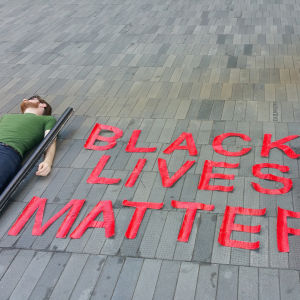Editor’s Note: For an alternative viewpoint, see: Point: A Plea to the Millennial Generation: Don’t Give Up On Free Speech
The right to free speech does not excuse or protect hate speech. Not on college campuses, not anywhere.
When the Founders amended the Constitution, they gave special protection to people who would speak out against oppression and tyranny. The First Amendment guarantees the right to free expression, including the power to protest, because the men who fought in the American Revolution understood deeply how those in power could silence the voices of ordinary people.
The First Amendment’s true, original intent was to shield a fledgling democracy against the forces of oppression. People who use the First Amendment as a shield to defend their own hate speech are defending the very oppression that our forebears fought so hard to eliminate.
Did James Madison anticipate that in the 21st century people would use the First Amendment to defend someone’s inalienable right to smear feces in the shape of a swastika on the wall of a unisex bathroom stall at the University of Missouri? Hardly.
At Mizzou, Yale, Claremont McKenna and other institutions of higher education, racist incidents like this have sparked protests, forcing the president of Mizzou and the dean of students at Claremont to resign. Students of color and their campus allies are calling for the dismantling of power structures and systemic practices that perpetuate institutionalized racism. Students across the United States are expressing solidarity, and alumni have come together across social media platforms and in some cases in person to show their support.
These protests haven’t happened in a vacuum. We have not erased the effect of centuries of hatred and aggression against people of color — on the contrary, it appears that white supremacists are fighting harder than ever to maintain a hold against the swelling tide of tolerance and progress.
I am a recent graduate of Wesleyan University, an imperfect institution that prides itself on its diverse community but has had its share of related controversies on and off-campus.
The Cardinal Conservatives held an anti-affirmative action bake sale that set different prices for different races and ethnicities in 2010. The next year, a student taped signs across our dining hall doors saying “no colored people allowed” during a school festival as a “joke.” And a survivor of sexual assault who spoke out was hounded by fraternity members until she was forced to leave campus.
Most recently, an incendiary op-ed criticizing the Black Lives Matter movement that appeared in The Wesleyan Argus, the student-run newspaper, ignited a firestorm and provoked calls to defund the paper entirely.
But Wesleyan is better equipped than most universities to address its shortcomings regarding racial justice. Many of the school’s high-achieving students go there because of the ways in which it encourages dialogue, curiosity and discovery.
Hate speech and racial profiling are still a lingering part of campus culture throughout our nation, despite attempts to make universities safe places of learning for all. The incidents that have sparked outrage are part of that continuing pattern. They’re fundamentally reprehensible, and we all should join together to figure out how to make campuses safer and more welcoming to students of color.
In the midst of a groundbreaking racial-justice movement, people are uniting across economic and cultural divides to join in protest of a system makes it even harder for people of color to survive, much less thrive, in America today. Speech is a critical part of that movement, and of the violent backlash against it.
Our nation is uniquely positioned to embrace this movement. We must strive to become a nation free from hatred, a nation truly indivisible with liberty and justice for all. There is a welcome place in our nation for disagreement and debate and differences, but not for vitriol or calls for violence against other people.

